Can divers unknowingly contribute to the death of coral reefs?
Sunscreens and UV filters in sunscreens have a negative impact on coral reefs and cause the death of corals. Divers, unknowingly, may be negatively impacting the underwater environment of the Red Sea by using sun protection. Choose the sunscreen which is friendly to coral reefs.
Corals are dying because of sunscreen
Imagine that 1 drop of a certain compound - released into a tank the size of 6.5 Olympic swimming pools - is dangerous to corals. This compound is: oxybenzone (another name: beznophenone-3). It is a compound that absorbs ultraviolet rays. Its popularity is due to the low production price. It is widely used in sunscreen creams, lotions and cosmetic filters. Divers using these cosmetics introduce oxybenzone into the aquatic environment.
Harmful effects of sunscreen ingredients
Oxybenzone has adverse effects in several ways:
- corals are more sensitive to bleaching
- damages the genetic material of corals, which reduces the coral population
- death of corals due to clogging in the reef
- deformation and excessive growth of the coral polyp
Research on the effects of sunscreen ingredients was conducted in the Virgin Islands. According to the report, oxybenzone has an adverse effect on plankton and some fish, causing difficulties in reproduction.
By protecting ourselves, we harm corals
Other substances that may be contained in sun creams and which also adversely affect the aquatic environment: Enzacamene - a UV filter (UV B) - is responsible for the oxidation of water. The resulting hydrogen peroxide (hydrogen peroxide) has an adverse effect on, among others, molluscs and sea urchins. Mineral filters - nanoparticles of titanium dioxide and zinc oxide - can penetrate aquatic organisms, causing them to be less resistant to harsher conditions, making it more difficult for species to survive. Research by the Haereticus Environmental Laboratory shows that every year 14 tons of dangerous substances from sun creams penetrate coral reefs around the world. Hawaii was the first to ban the sale of cosmetics containing oxybenzone and octocarboxyl.
How to protect yourself without harming the coral reef
You can use a hypoallergenic cream (i.e. for people with allergies and sensitive skin) containing natural buriti oil (cold pressed from the vine palm - Mauritia flexuosa) from the Anthyllis line. The manufacturer is the Italian company Pierpaoli, which uses ingredients from organic farming for production.
Another solution for divers may be to avoid the sun or use protective clothing.
Divers may not be the largest group polluting the aquatic environment with sunscreen - after all, we spend time underwater - but we will be the first to observe this adverse impact when diving on coral reefs.
If changing your sunscreen to another one can help coral reefs - then there is no need to hesitate - let's just change it and that's it!

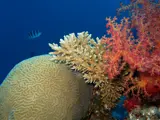
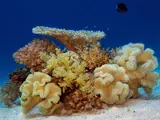
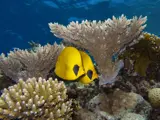
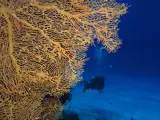
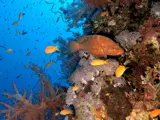
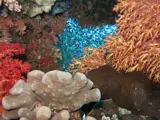
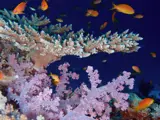
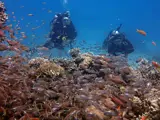
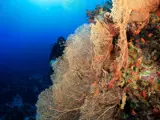
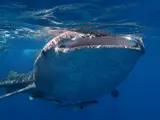



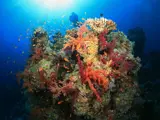


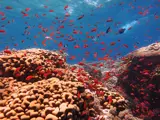
About the author
Pavla